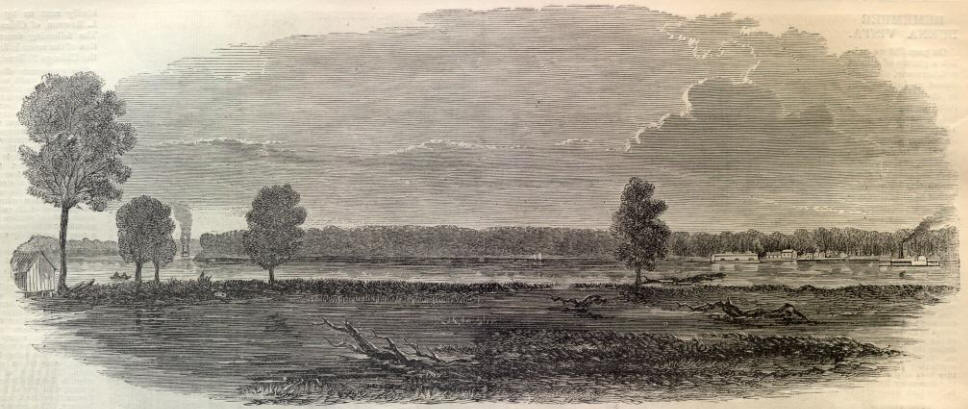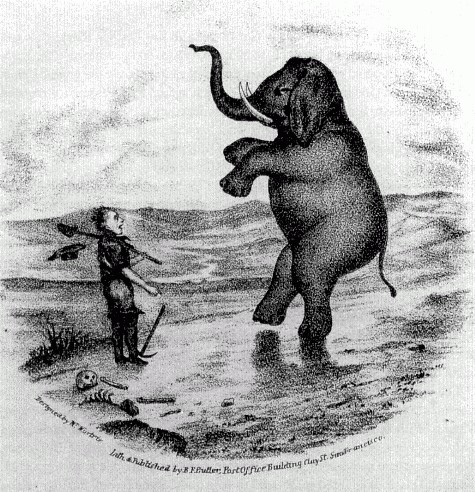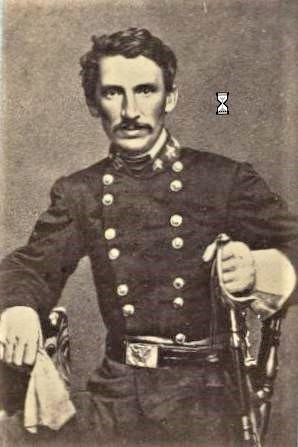When will we see ‘the elephant’?


A drawing of Bird’s Point, Missouri, where the 20th Illinois Volunteer Regiment was sent in September 1861. They will wouldn’t see any major battles for a while.

Those who volunteered for duty were anxious to “see the elephant,” that is, get involved in battle
By Sandy Vasko
“Seeing the elephant” … it’s what every soldier and soldier “wanna-be” wanted to do during the Civil War. It means seeing real meaningful battle. For those already mustered in the 20th Illinois Voluntary Infantry, it had not yet happened. Yes, there were a few skirmishes around Cape Girardeau, but for the most part, there were no real out and out battles.
On Sept. 12, 1861, the 20th was sent to Bird’s Point, Missouri. All were in hopes that this would mean real fighting. It did not; it just meant small raids here and there, more drilling, more marching, but the elephant was nowhere in sight.
Back home, T. O. Osborn, later to become General Osborn, a Chicago lawyer, was actively recruiting a regiment in the Will County area. He had started this task as soon as war was declared and was successful in putting together a full regiment. However, the Federal government refused to accept it as an “official” regiment from Illinois. The belief was that the war would be over in a few months anyway, so there was no need for more troops.
Osborn even tried to get the regiment mustered in as a Missouri regiment, as that state was low on recruits. It was a no go. Governor Yates of Illinois, with all his political pull, was unsuccessful as well, though for his efforts the regiment was later called Yates Phalanx. It wasn’t until the Union was soundly defeated at the first Battle of Bull Run, called Manassas by the Confederates, did the Federal government realize that the war was not to be won that easily and allowed more units to be officially mustered in.
Of the recruitment George Woodruff writes, “Recruiting for this regiment was early commenced in this county, principally in the city of Wilmington, and the towns of Florence, Wesley, Channahon, and Homer.
“Co. A was raised in Wilmington, largely through the efforts of S. W. Munn, Esq., who became its captain, and was afterwards promoted major of the regiment. He was assisted by Lt. L. A. Baker, afterwards Captain, and Lt. Richardson, and others.
“Co. E was also raised mostly in Wilmington, Wesley, and Florence, and was originally known as the “Florence Rifles,” Jas. H. Hooker, of the last-named town, being its first captain.
“Hon. Amos Savage, of Homer, one of the oldest and best-known residents of that town, was also actively engaged in raising Co. G, in his town and vicinity, he became its 2nd lieutenant, and subsequently its captain. The first captain of this company was the Rev. Wm. B. Slaughter, well known to many of our citizens as once pastor in charge of the Methodist Episcopal church of Joliet.”
The regiment would be mustered in officially in Chicago in December of 1861 and named the 39th Illinois Voluntary Infantry.
Also, during September, Adam Sachs and Adolph Schuele of Monee were active in recruiting a company of horsemen from that area, later to become Company C of the 13th Illinois Voluntary Cavalry. The same month, Dr. Danforth, of Joliet, recruited a company of cavalry from Will County, first known as the Fremont Hussars, but later became Co. F of the 13th.
The Will County Board of Supervisors was busy during September paying the bills incurred by the war. Unlike today, when the Federal Government funds all war activities, the regiments in each State were funded by the States and Counties where the men mustered in.
In September, $950 (about $30,000 today) was paid out by the County Board for uniforms for Company E of the 20th for their uniforms. They only paid for Company E, because it was the only Company that had Will County men.
The Board also authorized payments to families who had lost their sole support when the man of the house enlisted. Wives and later widows were given $1.25 per week ($40), and another 50 cents ($19) was allotted for each child under twelve. Children over twelve were considered old enough to go out and find a job for themselves. Sixty families, which included 120 children in Will County, qualified for payments at that time.
President Lincoln called for a day of prayer and fasting on September 26th. Services were held at the Methodist Episcopal Church, now the Joliet History Museum, as well as other churches across the County. The prayers were for an early end to the war and, of course, a Union victory. Neither would be happening any time soon.

By October of 1861, the War Between the States was really starting to get serious. The boys of the 20th, who had joined in April, were finally preparing to see action. On October 18th, they boarded a steamer, destination Fredericktown, where they hoped to capture the notorious rebel Jeff Thompson.
By October of 1861, the War Between the States was really starting to get serious. The boys of the 20th, who had joined in April, were finally preparing to see action. On October 18th, they boarded a steamer, destination Fredericktown, where they hoped to capture the notorious rebel Jeff Thompson.
They made camp near a southern sympathizer’s plantation house. The chaplain of the 20th called on the family, and finding they were Baptist, asked if they would like a prayer meeting held in their home after dinner. To this they agreed, but unfortunately not all of the 20th were of a religious mind. While some of the men attended the prayer meeting in the home, others raided the farm stealing the family’s chickens, sweet potatoes and a good bit of their honey.
When a Sergeant Bernier, who was not aware of the theft, called on the family the next day to borrow a kettle, the lady of the house thought it pretty “cheeky.” She screamed, “Some of you come here and pray, and talk very pious, while the rest steal my chickens and potatoes! And now you want my kettle!”
She then attacked him with a broadside of words that we cannot repeat. Sergeant Bernier beat a hasty retreat still wondering what he had done wrong.
